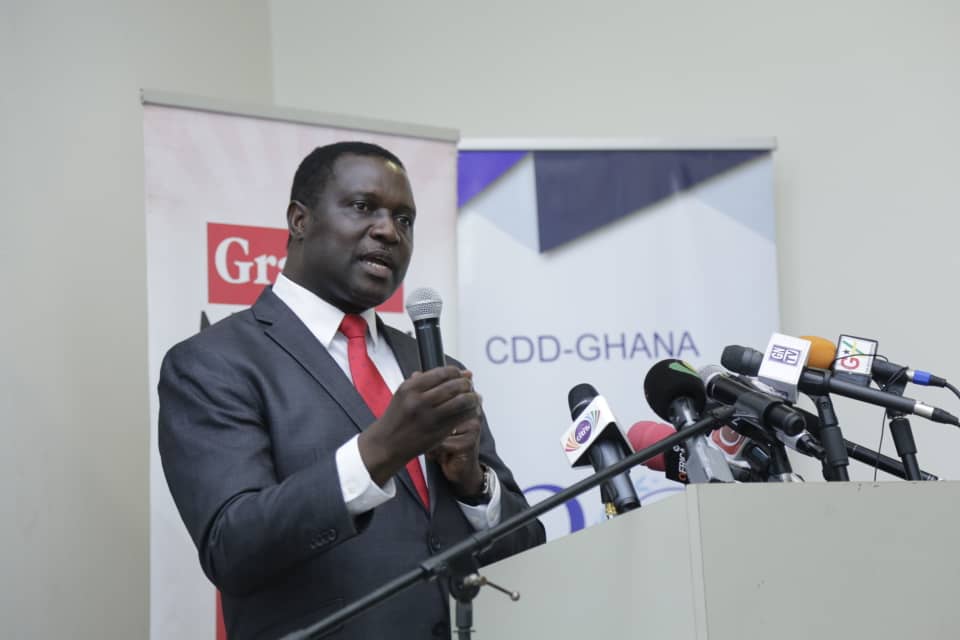
13 E-blocks come on board 2018/2019 academic year
Thirteen community day senior high school (SHS), popularly known as the E-block schools, started by the Mahama administration have been completed and are ready to come on stream at the beginning of the next academic year in September.
A Deputy Minister of Education in charge of General Education, Dr Yaw Osei Adutwum, who made this known, said the development was contrary to the perception that the community day SHSs started by the previous administration had been abandoned.
Advertisement
Speaking at the Daily Graphic Dialogue on Education in Accra on Wednesday, he said the government was continuing with the uncompleted projects.
Graphic Dialogue
The dialogue, on the theme: “Unpacking the double-track system: Implications for sustainable financing and prospects for educational quality in Ghana”, was sponsored by Star Ghana, the Centre for Democratic Development (CDD) and the Sustainable Development Goals (SDGs), with Joy FM and Citi FM as media partners.
It was attended by civil society organisations, stakeholders in education and media organisations.
Community day SHSs
Forty-six out of the 200 planned community day SHSs initiated by the immediate past National Democratic Congress (NDC) government were completed before handing over power to the New Patriot Party (NPP) administration in January 2017.
Some 123 of the schools were under construction.
More access under double track
Commenting on the double-track system, Dr Adutwum explained that it was being introduced to, among other things, deal with congestion in schools as a temporary measure until the infrastructure situation was dealt with.
He said the system “is an opportunity to grant access to so many students who would have been at home”.
“It is also to provide the opportunities for students who would never have made it to some of the top schools. It gives more contact hours, compared to the existing system,” he added.
He said the double-track system would bring an end to the cut-off point system that prevented some qualified students from furthering their education at the secondary level.
The deputy minister announced that the government was working on a $1.5-billion facility to complete all abandoned building projects in basic schools, SHSs and tertiary campuses in the country.
He said as the infrastructure situation improved, more schools would be taken out of the double-track system.
Interest in BECE resit
Taking a look at the Basic Education Certificate Examination (BECE) resit, Dr Adutwum said the free SHS policy had shot up interest in the resit of the examination.
He provided figures to back his assertion, saying that 11,000 pupils sat for the remedial exams last year, which was a huge jump from the 1,000 who did so in 2016.
While applauding the previous administration for introducing the system, he said interest in the resit was low before 2017 because there was no space in SHSs for those who passed the resit.
In addition, he said, the issue of ability to pay was a disincentive for the students to resit, adding that because of school fees, even when they passed they could not continue their education.
He said another initiative that had increased the number of students writing the BECE was the decision of the government to absorb BECE registration fees.
Dr Adutwum observed that the dropout rate in junior high schools (JHSs) had been high because some parents struggled to pay BECE registration fees for their children.
Need for concensus building
In his remarks, the acting Managing Director of the Graphic Communications Group Ltd, Mr Ransford Tetteh, challenged Members of Parliament (MPs) to always speak with one voice on national issues, devoid of partisan colouration.
He said education was very critical and called for the need to speak to educational issues with the national interest at the centre.
For his part, the Programmes Director of Star-Ghana, Mr Amidu Ibrahim-Tanko, said education was fundamental to the development of the country and stressed the need for consensus building on educational matters.
The Director of Programmes at the CDD, Dr Franklin Oduro, expressed delight at the fact that the forum was held to give the public the opportunity to contribute towards the development of education in the country.
He said the worry of the CDD was how the government would assure the citizenry that the new educational system would enhance the quality of education in the country.
While describing the double-track system as “an excellent system”, a former acting Director-General of the Ghana Education Service (GES), Mr Charles Tsegah, expressed his reservation about it, saying there was not enough consultation before its implementation.
He insisted that the system was a “shift system”, adding that the government should reconsider the “no student should be left behind” mantra and adopt the cut-off point policy for admission to SHSs.



